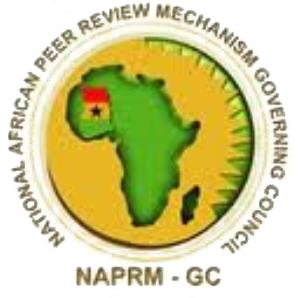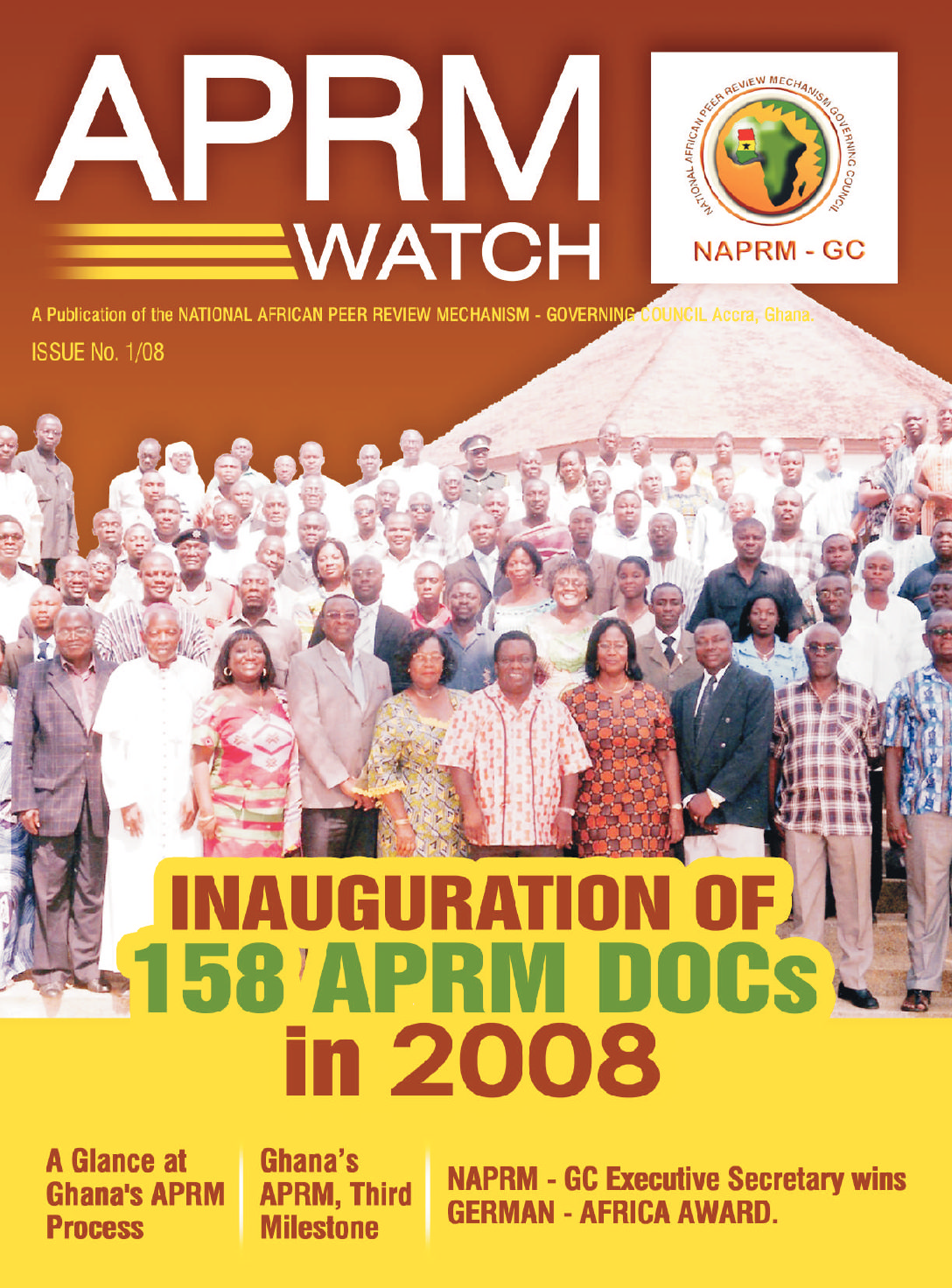|
The Hanns Seidel Foundation, the National African Peer Review Mechanism (NAPRM-GC) and the National Commission for Civic Education (NCCE) implemented the “Strengthening the APRM Process in Five West African Countries” project in Ghana. The project targeted five countries in the West African sub-region implementing the APRM namely: Ghana, Mali, Burkina Faso, Togo and Benin. It addressed the different needs of each individual country in improving the implementation of the APRM process. The project was supported by the European Union and Hanns Seidel Foundation. Implementation of the project began in September, 2013 and ended in February, 2016. Project coordination in Ghana was provided by national officers of both the NAPRM-GC and NCCE. Following the successful implementation of activities in year two, where a training manual was developed for APRM Oversight Committees, and Training of Trainers Workshops were held for the committees across the 10 regions of the country, the third year saw a number of activities being implemented also across the 10 regions. They were pilot capacity building workshops; a mid-term evaluation; a manual on the engagement of APRM Oversight Units; and the final project evaluation. Pilot Capacity Building Workshops The aims and objectives of Activity 4 were to increase the awareness of civil society on the APRM process and its purpose. Civil society actors were to be empowered through this training to engage duty bearers more effectively and demand accountability for their performance in delivering services. 20 workshops were held in all 10 administrative regions of Ghana. Phase I was held in the five regions of the southern zone of the country from March 9 to 26, 2015. Phase II was held in the five regions of the northern zone from July 27 to August 17, 2015. Workshop Topics The Pilot Capacity Building Workshops concentrated on sensitising participants who were mostly from civil society on a definition of the African Peer Review Mechanism, its genesis and history, and the process, as well as tools for implementing it. It was facilitated by the DOCs trained in activity 3 under the observation of the project team from the NAPRM-GC and the NCCE. The participants included representatives of associations of barbers, hairdressers, tailors, seamstresses, traders, women’s groups, and the disabled. Others were teachers, fishermen, farmers, faith-based groups, community-based organisations, representatives of political parties and traditional authorities. Also taking part were local government officials and service providers from organisations such as the Ghana Police Service, Ghana Fire Service, Ghana Water Company, Community Water and Sanitation Agency, and Electricity Company of Ghana among others. Representatives of the Hanns Seidel Foundation were present. A total of 1,113 participants consisting 734 men and 379 women, took part in the 20 workshops. Mid-Term Evaluation The mid-term evaluation was expected to provide empirical evidence of the usefulness of the activities implemented at the mid-term stage of the project. Specifically, it was to provide an assessment of the usefulness of the training manual that was developed in activity 2, and in activity 3, the training workshops implemented to prepare DOC members and NCCE officers to be actively involved in delivering the sensitisation stage of the project. This activity involved desk reviews, interviews and a workshop attended by various key stakeholders such as District Oversight Committee members, staff of the Institute of Local Government Studies (ILGS), participants from NCCE, project staff from the NAPRM-GC secretariat, and project coordinators from both NAPRM and NCCE. Other stakeholders who were interviewed by the consultant were selected participants at various workshops under activities 2 and 3, and users of the training manual. The workshop discussed lessons learnt, proposed improvements for the project, and elicited suggestions from participants on the way forward. Manual of Engagement of APRM Oversight Units (Activity 8) A manual on the engagement of oversight units in each of the five project countries was published following the execution of project activities in the field. It identified examples of best practices during implementation of the project. The manual is expected to serve as the guide book on how to effectively engage APRM oversight units in the APRM process. The five country reports on lessons learned will be amalgamated into one comprehensive manual and used in future training activities. 18 participants comprising the project team, selected DOCs, representatives from the HSF and project consultants participated in a stakeholder workshop on the manual. Final Evaluation The final evaluation sought to wrap-up all project activities, fine-tune the exit strategy of the partners, discuss the final project report, fine-tune the manual on best practices and finalise the evaluation and audit reports. It measured the accomplishment of key deliverable items the duration taken in accomplishing the activity, the adequacy of the team composition and achievement of the expected results. The methodology also measured output and adherence to the description of the activities. All project activities were implemented fully and project objectives achieved |

 newsletter-compressed
newsletter-compressed